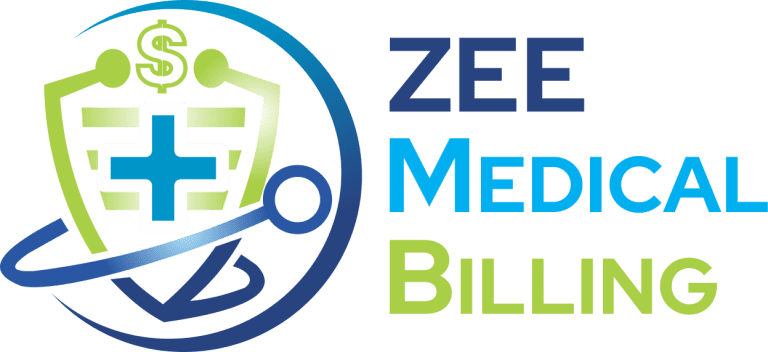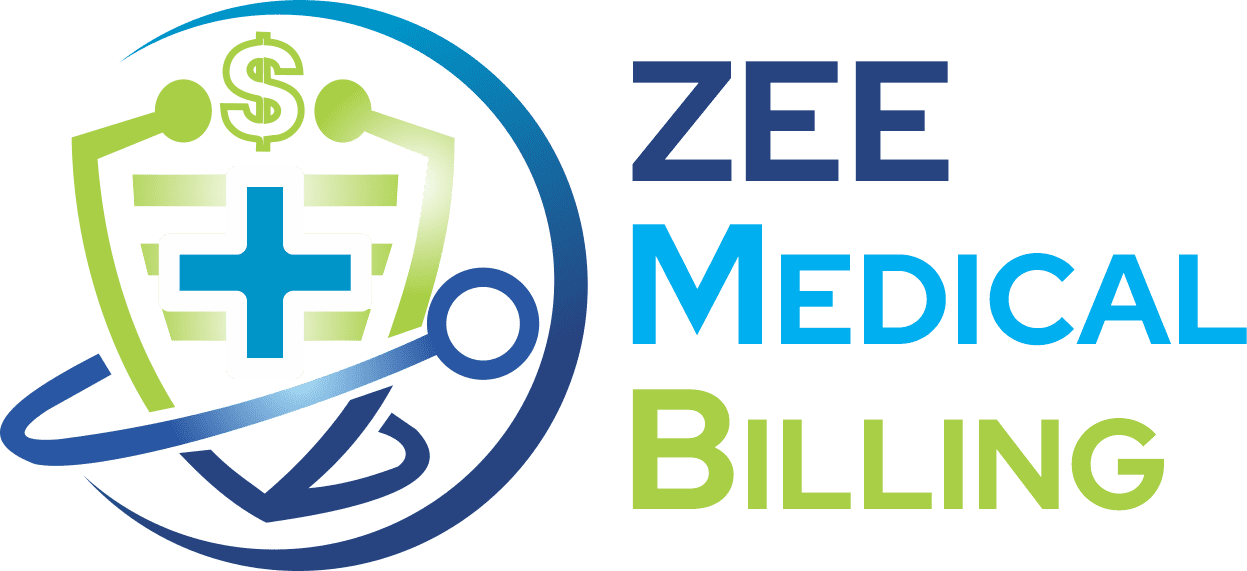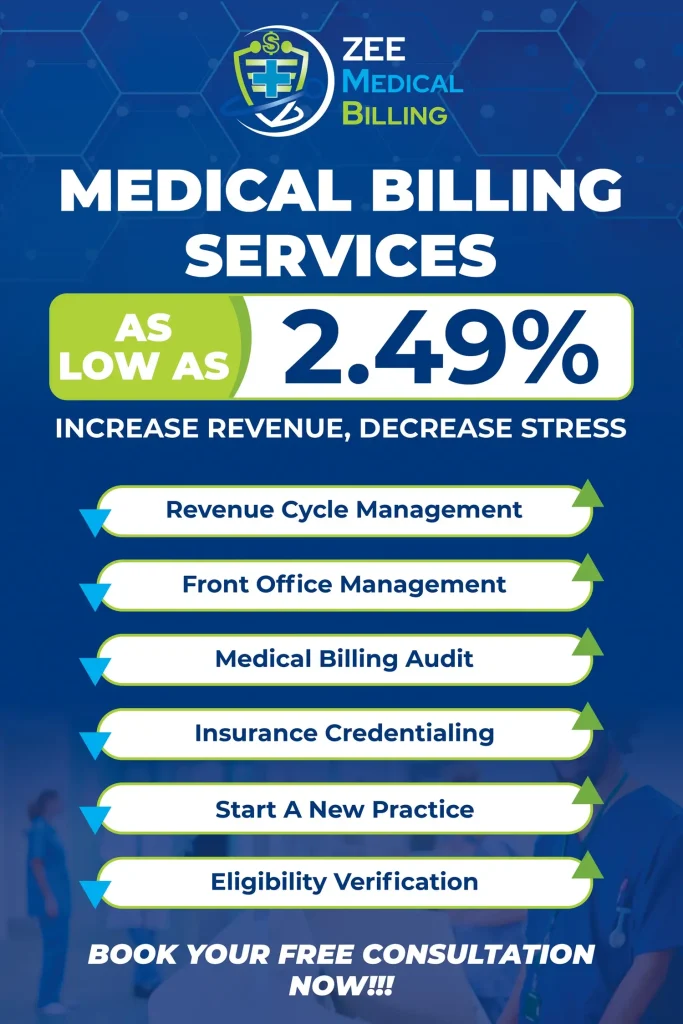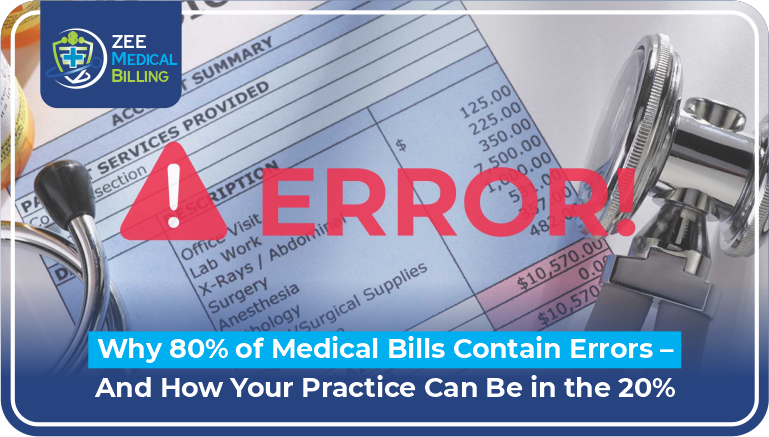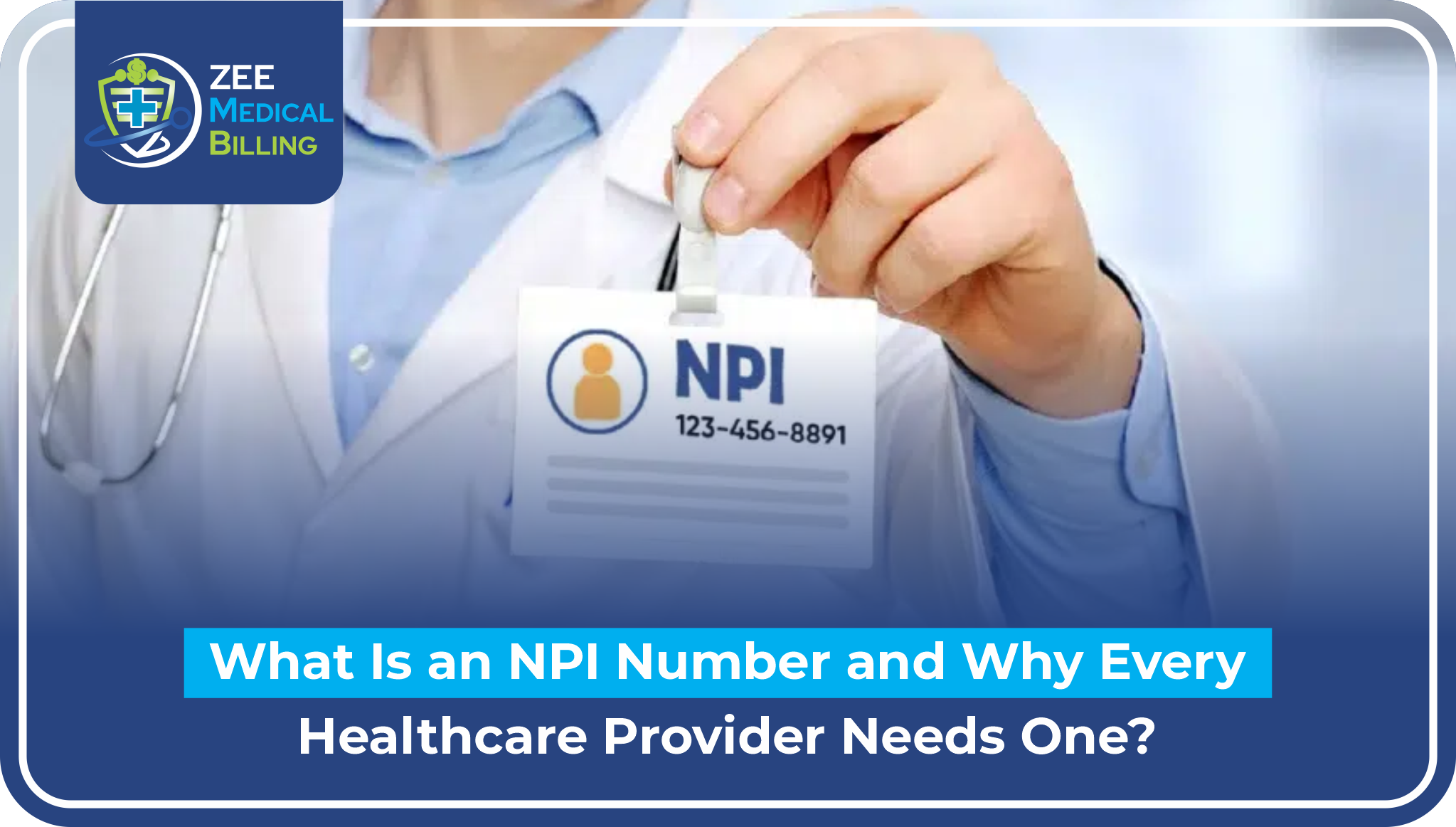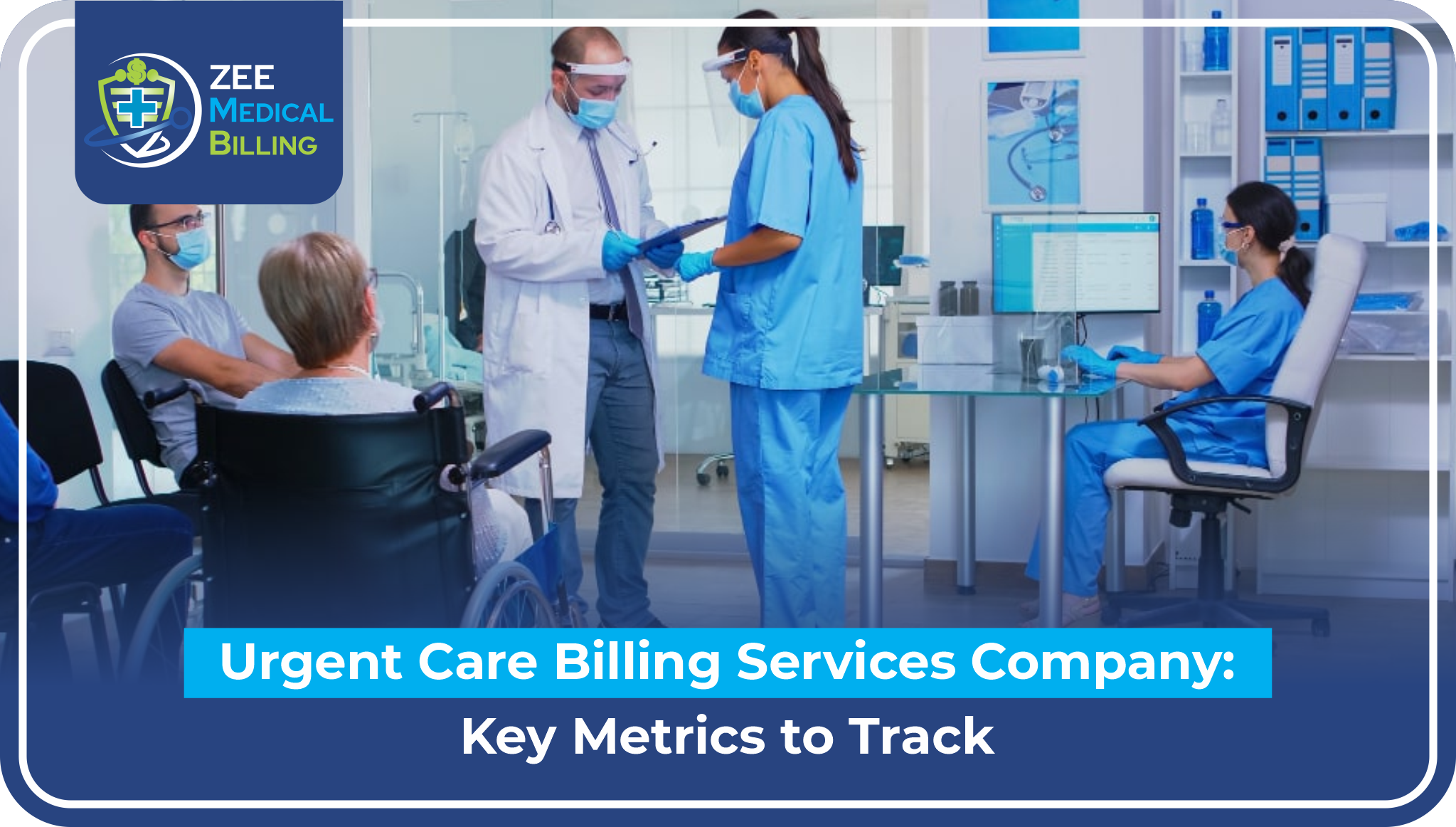Please take a moment to consider how much the world of healthcare billing has changed in just a few short years. Managing healthcare finances is challenging. Constant changes in rules occur.
Patient expectations are rising. Payer guidelines are complex. Collecting payments is no longer the only focus. Using smart tools and strategies helps you stay ahead.
AI, automation, and smart revenue cycle management (RCM) are crucial now. This is especially true for healthcare providers in places like Evanston, Illinois.
If you work in a hospital, clinic, or private practice, you need to keep up with the latest RCM trends. Staying updated is important for your role. This knowledge can help you improve cash flow, lower denials, and increase your overall revenue.
Let’s look at the main trends in revenue cycles that are shaping the future. Trusted firms like Zee Medical Billing are helping providers in Illinois adapt easily.
The Rise of AI in Revenue Cycle Management
The integration of AI in revenue cycle management is no longer optional—it’s transformative. Artificial intelligence helps automate tedious tasks such as claim scrubbing, coding validations, and payment posting. These tasks, when done manually, are prone to errors. AI tools drastically reduce mistakes, speed up billing processes, and reduce claim denials.
For example, with predictive analytics, providers can predict denials based on past patterns. They can then take steps to avoid them. AI helps make coding and revenue cycle management easier. It finds mismatches between procedures and diagnosis codes that could delay payments.
Why Automation Is Leading the Way?
Revenue cycle management automation is saving time and money for medical practices across the board. Automation speeds up and improves the accuracy of patient eligibility checks, co-pay calculations, and payment reminders.
In Evanston and other healthcare hubs, practices that adopt automation are seeing significant ROI. By replacing manual tasks with smart systems, teams can focus on patient care and strategic planning instead of paperwork.
Zee Medical Billing uses automation in its processes. This helps practices manage their revenue cycle from start to finish. It ensures that nothing misses attention, from patient registration to final payment.
Tailored Approaches by Specialty
Revenue cycle management isn’t one-size-fits-all. Different specialties face unique billing challenges.
- Dental revenue cycle management often deals with complex benefit structures and out-of-pocket costs. Having a system that understands revenue cycle management dental workflows is essential.
- Behavioral health revenue cycle management requires special attention to coding and privacy regulations. Claims often involve therapy time units, which demand precise tracking.
- Mental health revenue cycle management faces similar concerns with authorization requirements and session limits.
- In gastroenterology revenue cycle management, it is important to capture all diagnostic and procedural services. This often happens under tight deadlines.
- With urgent care revenue cycle management, speed is key. These centers need systems that process claims quickly, as patients often visit on a one-time or walk-in basis.
By working with experts like Zee Medical Billing, practices receive RCM support tailored to their needs. This helps them get higher reimbursements and fewer denials.
Education and Certification Matters
Having a team that’s trained in revenue cycle management certification and ongoing education is critical to staying compliant. Training your staff in revenue cycle management is important. It keeps them updated on industry changes. This helps your organization stay competitive.
Top healthcare revenue cycle management companies ensure that their staff members hold certifications. They also keep them updated on the latest best practices and legal requirements. Zee Medical Billing places a strong focus on education to ensure the highest standards of compliance and accuracy.
Outsourcing: A Smart Strategic Move
Many practices are now turning to revenue cycle management outsourcing to reduce costs and improve performance. Outsourcing revenue cycle management lets healthcare providers focus on clinical services while billing professionals handle the complexities of insurance claims, compliance, and collections.
You can work with top revenue cycle management companies like Zee Medical Billing. This gives you access to the newest tools and technology. You can benefit from their expertise without the high costs of creating your own in-house team.
Understanding the Revenue Cycle Steps
To truly master RCM, it helps to understand the 13 steps of revenue cycle management, which include:
- Pre-registration
- Registration
- Insurance eligibility verification
- Charge capture
- Coding
- Claim generation
- Claim submission
- Payment posting
- Denial management
- Appeals
- Patient billing
- Collections
- Reporting
These revenue cycle management steps form the foundation of efficient billing. If you are starting or improving your systems, using a healthcare revenue cycle management flow chart can help. It shows the steps in revenue cycle management clearly.
If you’re wondering when revenue cycle management starts, it begins before the patient arrives at the office. You start by scheduling and verifying insurance benefits, ensuring everything aligns from day one.
The Power of Consulting and Customization
Many practices benefit from expert revenue cycle management consulting. Consultants evaluate your current processes and identify areas for improvement, such as reducing denied claims, accelerating reimbursements, or increasing patient collections.
They also help answer a critical question: how to improve revenue cycle management without completely overhauling your existing systems. Sometimes, small changes like automating patient reminders or adjusting claim submission timing can make a huge difference.
Why Local Matters in Evanston?
In Evanston and the greater Chicagoland area, local knowledge makes a difference. Regulations, payer behavior, and even patient expectations can vary from state to state. Working with a company like Zee Medical Billing can help you understand Illinois billing rules. This can keep you compliant and competitive.
If you are a dentist, urgent care provider, or behavioral health specialist, local SEO can help you. RCM services can also be beneficial. These services target your area and can greatly improve your visibility and performance.
FAQs
1. What is revenue cycle management software?
Revenue cycle management software is a digital tool that helps healthcare providers manage billing, coding, claim submissions, and collections. It streamlines operations from patient registration to final payment.
2. What is the best way to get a revenue cycle management certification?
You can obtain a revenue cycle management certification through programs offered by professional associations like AAPC or HFMA. These courses teach compliance, coding, and billing best practices.
3. Why is outsourcing revenue cycle management helpful?
Outsourcing revenue cycle management allows providers to reduce administrative burdens and costs while improving billing accuracy and collections. Especially useful for small to mid-sized practices.
4. How do AI and automation improve RCM?
AI in revenue cycle management speeds up claim reviews, detects errors, and improves coding accuracy. Automation handles repetitive tasks like eligibility checks and reminders, saving time and reducing denials.
5. What are the key steps in a successful RCM process?
The steps in revenue cycle management include pre-registration, eligibility checks, coding, claim submission, denial management, and collections. Following the 13 steps of revenue cycle management ensures smoother operations and better cash flow.
Conclusion
In today’s healthcare environment, it’s important to stay updated on revenue cycle management automation. You should also be aware of specific solutions available. To improve your workflow or learn about revenue cycle management, consider working with experts. Zee Medical Billing in Evanston, Illinois, is a good option for long-term success.
By using new ideas, training, and local knowledge, your practice can succeed in a tough healthcare market. You can keep providing great care while also earning good revenue.
